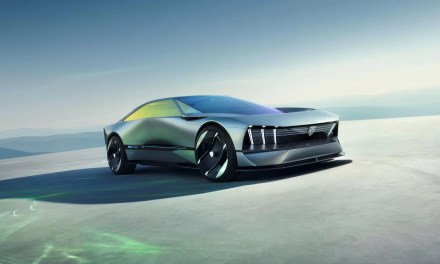Stellantis-backed, San Jose, CA-based startup Lyten, the supermaterial applications company and a world leader in lithium-sulfur batteries, announced today that it has received multiple Letters of Interest from the Export-Import Bank of the United States (US EXIM) to provide a funding package of up to $650 million for the expansion of lithium-sulfur battery manufacturing in California and Nevada.
In October, Lyten announced the location of the world’s first lithium-sulfur battery gigafactory in Reno, NV, with the facility scheduled to come online in 2027 and reach 10 GW annually at full capacity. Last month, the company announced the acquisition of Northvolt’s Silicon Valley battery manufacturing facility in San Leandro, CA, which it intends to ramp up for commercial sales in the second half of 2025.
“We are thrilled to work with US EXIM as a financial partner to scale U.S. lithium-sulfur manufacturing to meet rapidly growing global customer demand,” said Dan Cook, Co-Founder and CEO of Lyten. “Lyten’s lithium-sulfur batteries are a U.S. innovation and rely on a U.S. materials supply chain. The San Leandro and Reno factories will make the U.S. the leading manufacturer and exporter of lithium-sulfur batteries in the world.”
US EXIM is the official export credit agency of the U.S. Federal Government, whose objectives include strengthening America’s supply chains through its “Make More in America” initiative. Financing for Lyten is in support of US EXIM’s mandate to accelerate U.S. competitiveness in Transformational Export Areas (TEAs). EXIM has current exposure to $1.4767 trillion in lending across 148 countries around the world, according to its 2023 Annual Report.
“Batteries are of strategic importance to the U.S. economy, to national security, and to the competitiveness of U.S. companies in the global market,” said Sarah Whitten, EXIM Bank Senior Vice President for the China and Transformational Exports Program (CTEP). “Lyten is bringing a technology to the market that the world needs now, and we are excited to support the capital required to scale U.S. manufacturing of lithium-sulfur for export to countries around the world.”
Lyten says its lithium-sulfur battery cells have higher energy density and are up to 50% lighter in weight than current lithium-ion batteries. The company’s cathode, anode, and cells are manufactured in the U.S. from abundantly available local materials, eliminating the need for mined minerals like nickel, cobalt, manganese, and graphite. The use of low-cost, local materials is said to make its lithium-sulfur battery a lower cost and higher performing alternative to lithium-ion at scale.
EXIM and Lyten are working to finalize loan terms by the end of January to support multiple Lyten MOUs to supply battery energy storage systems (BESS) to island nations from the San Leandro facility. Lyten’s BESS solution uses the unique properties of lithium-sulfur to deliver improved temperature range performance, low self-discharge rate, and ultra-light weight to support distributed BESS deployments in challenging geographies.
“Tropical regions make up 40% of the world’s population and are the fastest growing population base on the planet,” said Celina Mikolajczak, Lyten’s Chief Battery Technology Officer. “The exploding energy demand within these regions increasingly relies on solar power generation, but current lithium-ion battery technology to store that energy does not perform well in hot, tropical conditions. Lithium-sulfur’s performance actually improves in hot conditions, making it a perfect solution for energy storage in tropical climates and for island nations.”
Founded in 2015, Lyten’s proprietary processes permanently sequester carbon from methane in the form of 3D graphene and it uses the tunable supermaterial to develop decarbonizing applications. The company has received over $425 million in investment from companies like Stellantis Ventures, FedEx, Honeywell, Prime Movers Lab, Walbridge Group, Luxembourg Future Fund, and European Investment Fund.
Lyten is currently commercializing next-generation lithium-sulfur batteries for use in the transportation, aerospace, space, consumer electronics, and energy storage markets; high-strength, low-carbon-footprint composites; and next-generation sensors that significantly increase detection sensitivity and selectivity for use in environmental, automotive, industrial, health, and supply-chain applications.
The company has an ongoing joint development agreement with Stellantis. Its 800-V lithium-sulfur batteries that do not use nickel, cobalt, or manganese were featured in Chrysler’s 2024 Halcyon four-door concept car.
Lyten recently announced that its battery cells were selected for demonstration aboard the International Space Station in 2025 for use in a range of space applications. Earlier this year, the company announced it had partnered with leading defense manufacturer AEVEX Aerospace to demonstrate lithium-sulfur battery-powered unmanned air vehicles fully compliant with the 2024 National Defense Authorization Act.
- 2024 Chrysler Halcyon concept features Lyten lithium-sulfur batteries.
- Lyten’s lithium-sulfur battery assortment.
- Phase 1 3D rendering of Lyten’s planned Reno, NV, gigafactory.




























































































